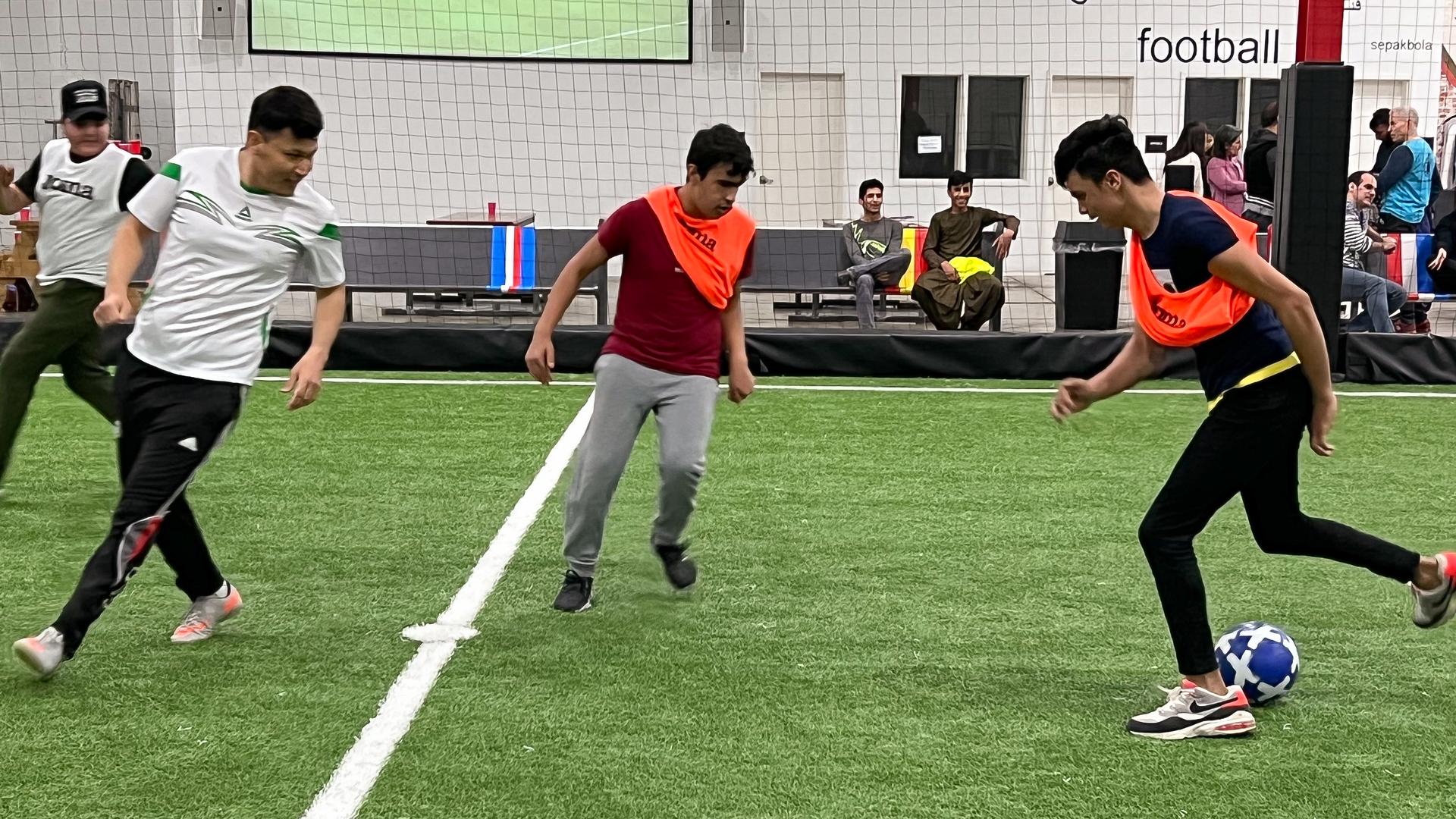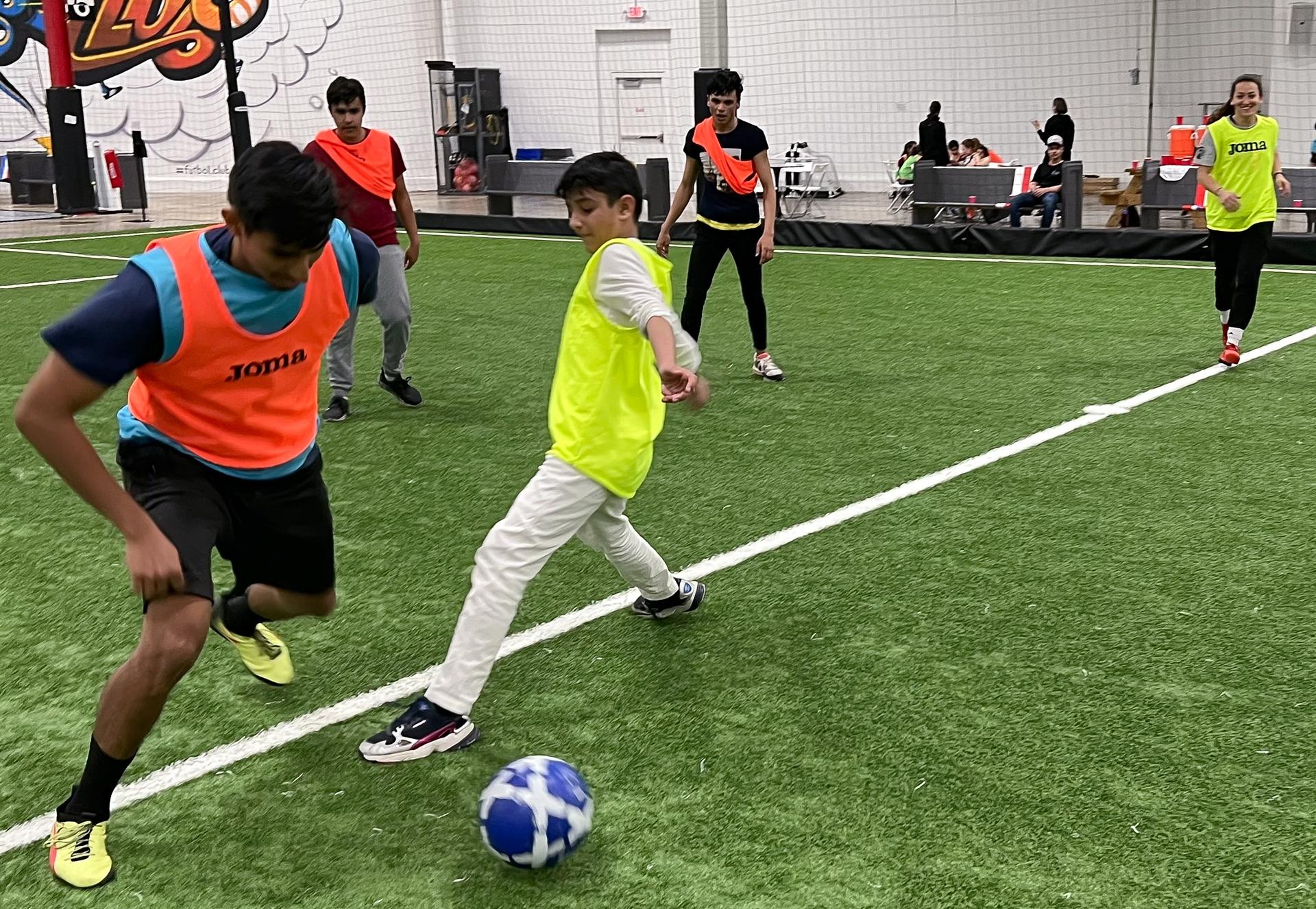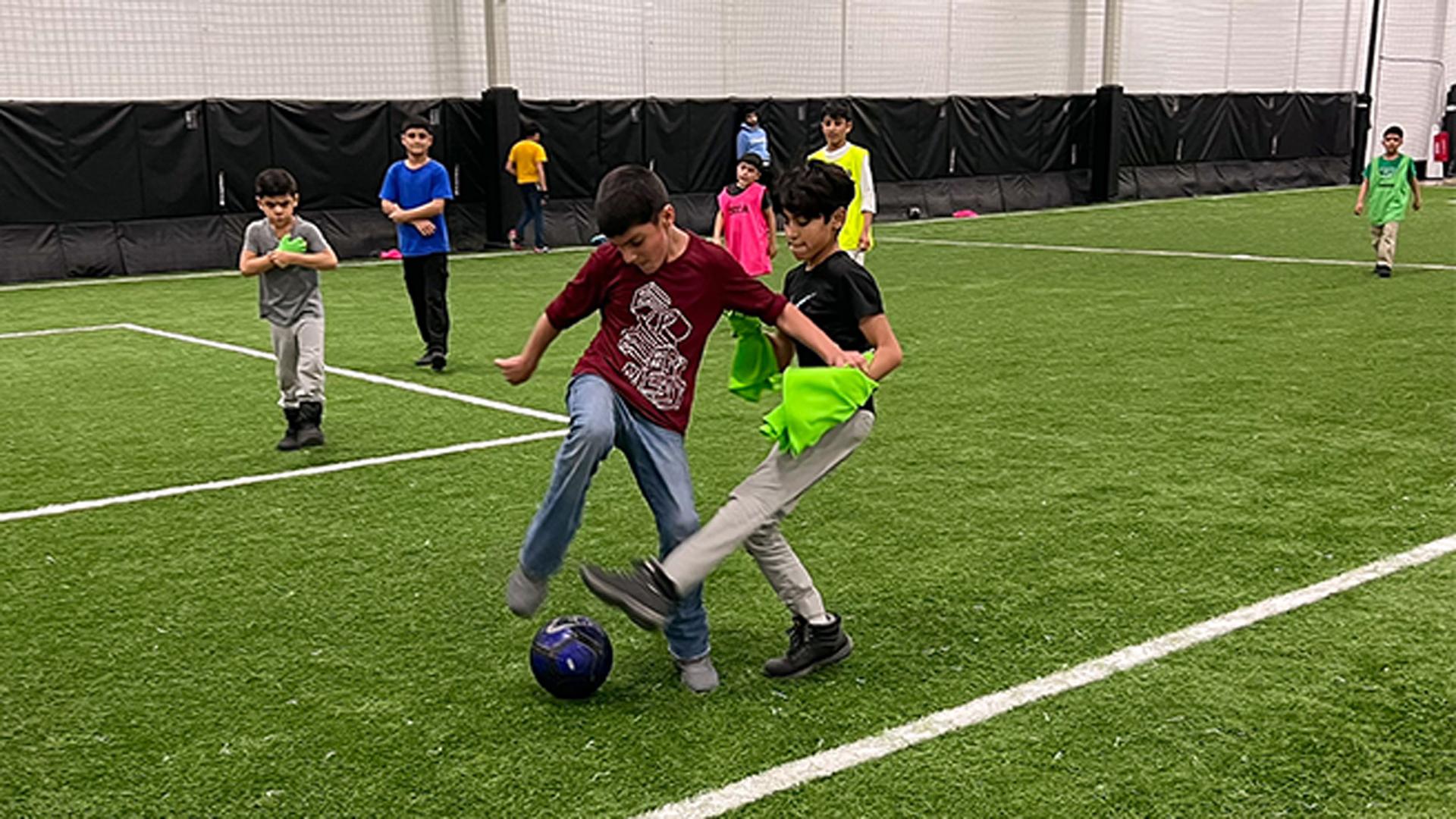Some of the younger boys of newly arrived Afghan refugees play in their own game at a St. Louis sports facility. The weekly get-together is a chance to exercise and make new friends.
Dance music boomed and soccer balls flew through the air as about 35 kids ran around at Futbol Club STL in St. Louis on a recent Saturday afternoon.
The children all fled Afghanistan with their families in recent months, after Taliban fighters seized control of the country in August.
Older boys played on one field at the indoor sports complex while younger boys played on another, and the girls gathered on a third field. The children shouted to each other in Dari, Pashto and bits of English.
Related: Some Afghan university students find refuge — and hope — in Kyrgyzstan
The International Institute, a local St. Louis organization that has taken the lead in relocating Afghan refugees to the region, organized the 12-week soccer program, which will continue through the end of April.
“A lot of times when we’re trying to work in a crisis, we’re focused on food. We’re focused on shelter,” said Moji Sidiqi, program manager for the Afghan Support Program, a cluster of relief efforts spearheaded by the International Institute and other local aid groups. “But then, there’s this aspect of being a child. Being out and about with your peers, and just being children.”
Sidiqi, 31, joined the International Institute about a month ago. She can relate well to these children: She too fled Afghanistan as a child, and lived in Moscow for a few years before landing in St. Louis at age 9.

Most of the young soccer players gathered on this day were still living in hotels while the International Institute works to secure long-term housing. They all qualified for a special refugee visa because adults in their families worked alongside US military forces in Afghanistan, an act that could expose them to retaliation from the newly ascended Taliban.
After spending much of their time in hotels since arriving, the children were happy to have something fun to do.
“Soccer is good for health. I like to play with the other guys.”
“Soccer is good for health. I like to play with the other guys,” said Zubair, a 15-year-old boy who has been in St. Louis for two months following a five-month stay in New Jersey.
He said some of his friends are good cricket players, but they also appreciate the chance to play soccer.

A refugee command center, including representatives from six other local organizations in addition to the International Institute, is overseeing the logistics related to resettlement efforts. As of the end of March, nearly 600 Afghan refugees have moved to St. Louis, about half of them children.
The Afghan Support Program, which local groups announced in January, includes plans to create an Afghan chamber of commerce, a community center, computer training and other programs to help Afghans build a lasting community in St. Louis.
“We’ve been told there’s no program like this in the United States for Afghan refugees,” said attorney Jerry Schlichter, co-founder of the nonprofit startup competition Arch Grants. “It’s a very comprehensive program that we’ve developed to have the most welcoming community in America for Afghan refugees.”
Schlichter pointed to the region’s experience relocating refugees from Bosnia in the 1990s. St. Louis is now home to the largest Bosnian population outside of Europe.
For a city that now has only a bit more than one-third of the population it had in the 1950s — when the number of St. Louisans swelled to more than 800,000 — Schlichter said that Afghan refugees could find a place as the workers, students and entrepreneurs of the city’s immediate future.
Related: The spotlight has faded on Afghanistan, but not the urgency for Afghans seeking safety
“It’s a two-way need. They need support — they need the kind of help they’re getting here. But we, in St. Louis, need them, because they add strength to neighborhoods,” Schlichter said. “This is a one-time opportunity that we can either grab or let it pass us by.”
City business leaders made similar points when Mayor Tishaura Jones announced in August that St. Louis would welcome fleeing Afghans.
“Immigrants make our community stronger…”
“Let’s be clear: Immigrants make our community stronger. As we’ve seen with the Bosnian community and others, they start to build businesses and enrich our community,” Jason Hall, CEO of the economic development agency Greater St. Louis Inc., said at the time.
During the first week of the soccer program in February, some of the children arrived wearing sandals or barefoot. A private donor stepped up to pay for athletic shoes, which the owner of St. Louis-based sports supplier GKUltra sourced at cost. One week, the children lined up to have their feet sized.
Related: Behind the story: Shirin Jaafari’s reporting from Herat, Afghanistan, in the summer of 2021
Program organizers are trying to find more sportswear for the participants, but have had trouble finding the more-modest clothing that the participating Afghan girls prefer.
Volunteers drive the children to and from the sports complex each Saturday, and spend time on one field with the youngest participants, helping them practice basic soccer skills. Toward the end of the day, one recent week, the younger girls crowded around a table with coloring books, chatting.
“We want them to have a nice, welcoming experience — being with familiar faces, with friendly faces,” said Carlos Suarez, a logistics manager for the refugee command center, as he watched a soccer game from the sidelines. “I think that’s a key part of getting them into the St. Louis community.”
An earlier version of this story appeared on St. Louis Public Radio, written by Jeremy D. Goodwin. @jeremydgoodwin
